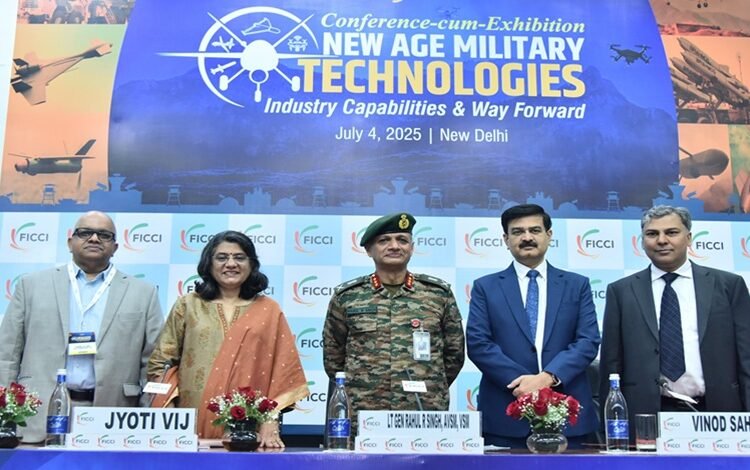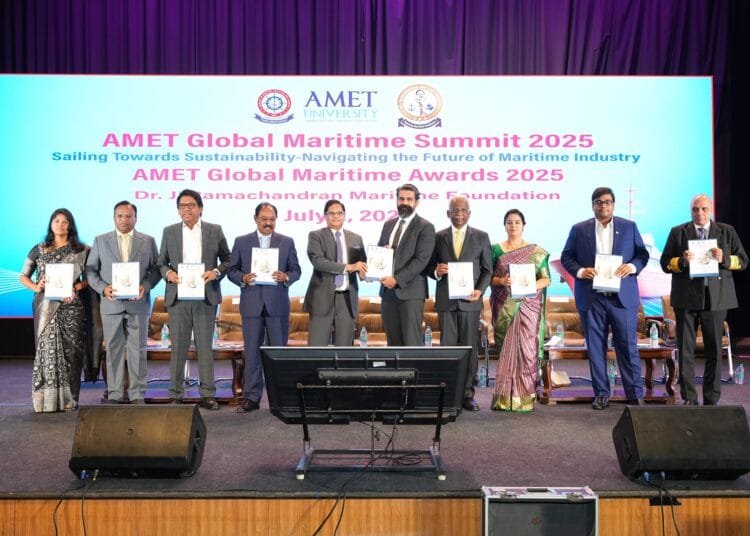Singapore remains bullish on India, says Minister
The India-Singapore partnership will continue to flourish, with a keen eye on new opportunities and an unwavering commitment to their peoples and societies, saying this, Minister S. Iswaran gave the assurance at the 2nd meeting of the India-Singapore CEOs’ Forum held 18 Feb 2021.
“Though we are convening under challenging circumstances, this forum is a heartening reminder of the enduring economic and people-to-people ties between our countries,” said Iswaran who is Minister of Communications and Information and Minister-in-charge of Trade Relations.
“As a small city-state connected to the world, we are keenly aware in Singapore, that shutting our doors is not an option. We will continue to work in partnership with our close friends, like India, to tap on each other’s strengths for mutual benefit,” the Minister told the two countries business leaders.
He assured the Indian businessmen at the forum that Singapore remains open to international business, investment, and talent. “Even in these trying times, the strong ties that Singapore and India have built over the years have enabled us to keep up the momentum of our engagements.”
Despite disruptions to global supply chains, freight, essential goods and crucial medical supplies were kept moving between India and Singapore.
“And together, we are embarking on new projects to future-proof our economies, in exciting areas such as FinTech, and by encouraging start-ups and innovation.”
Crucially, Singapore remains bullish on India’s potential and entrepreneurial capacity, said Iswaran, underlining that Singapore is the largest foreign investor in India, with investments of around US$2 billion announced since 2019.
“We have likewise encouraged Indian businesses to establish themselves in Singapore. Indian companies form the largest overseas contingent that have invested in Singapore, and several represented at this Forum have a significant presence in Singapore.”
He noted that the forum had chosen to identify forward-looking areas of cooperation, focusing on opportunities amidst the challenges. The Minister stressed on Collaboration for Development, Diversification, Digitalisation.
Elaborating on development, he noted that India has had an impressive growth story. “Singapore was an early believer and advocate of India’s immense potential and many might recall the start of “India fever”, ignited by our then-Prime Minister Goh Chok Tong in the 1990s.
“Today, there are many opportunities in India’s Self-Reliance development agenda that Singapore and India can collaborate on, so that both our countries develop the capabilities required for the demands of a post-COVID-19 world.”
Iswaran also commented on India’s Union Budget 2021-22, noting that it underscored commitment to improve physical infrastructure, urban services such as universal water supply, and the health and well-being of its people.
Singapore, believes the Minister, can work with India on some of these areas.
For example, Singapore companies have already been involved in India’s efforts to enhance connectivity through physical infrastructure like ports, airports, and highways, including Singapore-based PSA’s Bharat Mumbai Container Terminal in Jawaharlal Nehru Port.
However, it is not mere development, but sustainable development that will be central in the years to come, stated Iswaran. “Singapore’s recently unveiled Green Plan 2030 outlines our national agenda to advance sustainable development. To achieve our aspirations for a low-carbon future, Singapore will tap on technology and policy solutions to overcome our limited natural resources.”
In this regard, India’s growing emphasis on renewable energy technologies, especially solar and others, will open new avenues for cooperation, he went on.
India and Singapore can also focus on diversification, he noted. COVID-19 has highlighted the need to be nimble and flexible. In that vein, the Singapore-India relationship should evolve and diversify into new sectors to capture the breadth of opportunities, including those arising from the pandemic.
“Singapore is keen to work with India to deepen our partnership in new and emerging areas of growth. This includes identifying new areas for R&D collaboration, locating new sources for essential products and working with new industry partners.
“For instance, Singapore’s private sector players can work with their Indian counterparts in clinical research and healthcare manufacturing. Singapore company Clearpack partnered the Rajasthan-based social incubator PARC to develop a Made-in-India emergency respirator system to ease the shortage of ventilators early last year. This is an example of what can be achieved,” he highlighted.
The diversification of the two countries’ economic relationship beyond existing sectors, geographical areas and partners will generate new opportunities for their economies and deepen the bilateral relationship for the long-term.
Iswaran sees collaboration in the digital economy underpinning post-pandemic economic recovery and serve as a key engine for growth globally.
“We invite India to partner Singapore as we invest for the future, by building digital bridges of cooperation.”
Singapore is pioneering a network of Digital Economy Agreements (DEA) which will facilitate seamless end-to-end digital trade. “To date, we have signed DEAs with New Zealand, Chile and Australia. We are in discussions with other nations that have expressed an interest to do so, such as South Korea,” he informed.
Likewise, Singapore and India can establish similar mechanisms to set standards and promote cross-border innovation. These will improve Indian businesses’ connectivity with Southeast Asia, tapping on Singapore’s supportive regulatory environment for innovation. In turn, Singapore companies stand to benefit from India’s market and talent pool.
“We will also continue working with the Government of India to develop infrastructure that enable digital trade. We are currently working towards the linkage of our National Single Windows, which will aid trade documentation,” said the Minister, welcoming businesses to likewise contribute to the growth of the two nations’ digital economies.
For example, Singapore and Indian companies can jointly develop AI applications, or derive useful urban planning data and insights from joint Smart Cities IoT projects, he said. #investment #exports #economies #manufacturing #trade #technologies /fiinews.com










